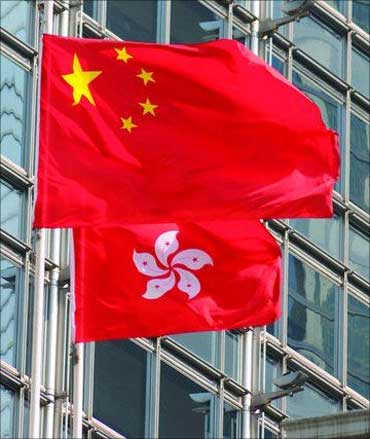
The conference hall at the Taj Palace, New Delhi was overflowing with young Chinese and Indians.
The organisers of Hong Kong-Guangdong Business Conference 2010 said more than 600 Chinese, and over 1,000 Indians were participating in the meet with the hope to sign deals worth $5 billion.
The energy level at the conference is rarely found in any other bilateral business meet. Every presentation was followed with complete attention, every speech was telecast live, and the text uploaded with record speed - you had to be there to witness how best i-Pads, Blackberries and video cameras were used.
The Indians brimmed with enthusiasm as they mulled the business opportunities that were presented by Hong Kong, and Guangdong, the legendary business district of China.
Guangdong is known as the factory of the world where SEZ concept was invented and implemented grandly.
In a clever move these two regions joined hands to attract Indians offering 'two-in-one' solutions. Their mission is simple - get business from India.
Click on NEXT to read more...
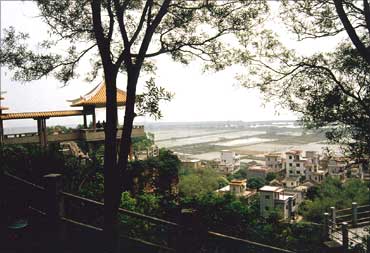
The Guangdong area of South China is the powerhouse of manufacturing industries.
Chinese labour thrives here taking the per capita GDP of the district to $5,965, and Hong Kong is superstar of global finance and service industries with world class infrastructure and talent.
Huang Huahua, governor of Guangdong province and Donald Tsang, Chief executive of Hong Kong special administrative region were the main attractions of the conference.
Tsang was confident of getting Indians on board because 1,500 Indian companies are already operating in Hong Kong, and he highlighted his country's strong appeal to growing number of international companies as a platform to reach Guangdong, the rest of the Mainland (of China) and the Asia-Pacific region.
The organisers said that, "In order to give full play to the advantage of closer cooperation between Guangdong and Hong Kong, to extensively popularise the Outline of the Plan for Reform and Development of the Pearl River Delta (2008-2020), to jointly promote the delta and attract enterprises and professional talents from India" they are in India.
The event is being held during the 60th anniversary of the establishment of diplomatic relations between China and India.
Click on NEXT to read more...

Tsang, said, "When it comes to harnessing the potential of our region, Hong Kong and Guangdong are both batting for the same team."
Tsang was arguing that to do business with Mainland China, 'arrive in Hong Kong and park yourself there, first'. He said Hong Kong is only one hour away from the GPRD region. It's connected by cross-boundary roads, railways, air services and ferry services.
He said, both business districts have a "shared history and a shared culture."
He said, "The massive scale of GPRD's export sector means that if it were a country, it would be the world's 18th largest trading economy ahead of countries including Belgium, Sweden and Switzerland.
Hong Kong is part and parcel of this success story: we are Guangdong's largest trading partner and its largest source of foreign direct investment, accounting for over 60 per cent of its total FDI stock."
Companies in Hong Kong employ some 11 million people in the GPRD, he added.
What Tsang was talking about sounded something like Thane-Pune industrial belt collaborating with Gujarat to attract investment.
Tsang said that Hong Kong is keeping its unique advantages intact while growing along with other Chinese regions.
Click on NEXT to read more...
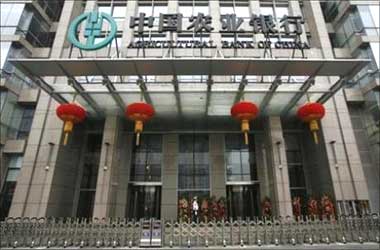
The world's biggest IPO - Agricultural Bank of China - enjoyed a smooth and successful listing in July this year, raising over $22 billion in Hong Kong and Shanghai.
Although Hong Kong is a relatively small city, its stock market is the seventh largest in the world and the third largest in Asia, with market capitalisation of $2.3 trillion, he said.
Referring to his meeting with Finance Minister Pranab Mukherjee, Tsang remarked that the Indian government is keen to explore opportunities that will help 'business move forward'.
Key topics under discussion included suggestions towards the abolition of double taxation agreement, abolition of visa and settlement of disputes through arbitration.
We are working towards creating a conducive environment for greater bilateral trade. This partnership with India will help bring mainland investors into this important market, added Tsang.
While giving the example of closer co-operation between Hong Kong and Guangdong and the GPRD he said in 2008, global science-based products and services company DuPont set up DuPont Apollo.
It is a wholly owned subsidiary incorporated in both Hong Kong and Shenzhen in Guangdong to support the rapidly growing solar energy industry.
The company's R&D Centre at Hong Kong Science and Technology Parks, and its new manufacturing facility in Guangming New District in Shenzhen, are now fully operational.
This model makes best use of the advantages offered by Hong Kong and Shenzhen.
Click on NEXT to read more...
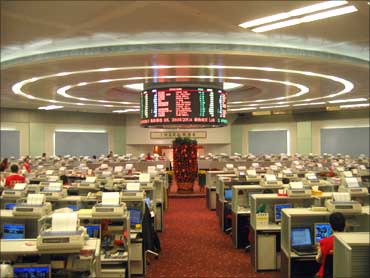
While inviting Indian businessmen and talent to Hong Kong, he said, "Today, Hong Kong's Indian community amounts to more than 27,000 people - it is one of our largest expatriate communities. Some of our city's leading entrepreneurs are from India.
At the same time, many of India's leading companies have come to Hong Kong, looking to secure a foothold in the East Asian marketplace, and gain better access to Mainland China."
He also informed that at last count, some 1,500 Indian companies are doing business in Hong Kong including Bank of India, HCL Technologies, Satyam Computers, Tata Consultancy Services and Zee Entertainment Enterprises, to name just a few.
The bilateral trade between India and Hong Kong amounted to $13.5 billion. Indian exports to Hong Kong reached $6.7 billion, of which 75 per cent were pearls, precious and semi-precious stones.
Tsang didn't forget to mention that, "We have a free flow of information and ideas. We have a fully convertible currency and there are no restrictions on the flow of capital.
Our common law legal system is based on the English system and underpinned by an independent judiciary."
Click on NEXT to read more...
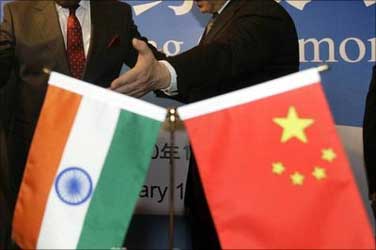
In many ways, Hong Kong is a familiar place for Indian entrepreneurs.
"English is the language of our business communities, we have similar legal systems, and we share common goals of openness, diversity and fair play. Our low and simple tax system is a great incentive for Indian companies."
Salaries tax is capped at 15 per cent and companies pay no more than 16.5 per cent profit tax. There is no inheritance tax, no VAT, no GST and no capital gains tax.
Hong Kong remains a key destination for foreign direct investment. Guangdong, Hong Kong and India focussed on information technology, infrastructure, agriculture, heavy industry, machinery, logistics and services industries, and a group of trading intentions as well.
In 2009, the total amount of import-export trade value of Guangdong was $611 billion, accounting for one-fourth of China's total.
So far it has attracted $233.2 billion making possible for 700 enterprises established by the top 500 multi-national corporations and their 200 affiliated companies to make big bucks.
The organisers said that Guangdong's companies have set up over 2,300 overseas operations branches and affiliated companies in more than 90 countries including Hong Kong, Macao and South East Asia.
Guangdong is in India now because it has entered a transition period with, "higher level of industrialisation, urbanisation, marketisation and globalisation."
Click on NEXT to read more...

In 2009, the import and export trade value between Guangdong and India was worth $7.8 billion, accounting for 18 per cent of that between China and India.
According to a press release, India is the ninth largest trading partner of Guangdong. The major products imported from India include diamonds, textiles, metal, plastic, leather and other raw materials, integrated circuits, pharmaceuticals while the main export commodities from Guangdong to India include household appliances and electronic products, which accounted for about 80 per cent of total exports from Guangdong to India.
Chinese government claims that by the end of 2009, there were a total of 78 projects from India amounting to $38.88 million.
At the conference Girija Pande, chairman of Tata Consultancy Services, Asia Pacific and Naresh Goyal, CEO of Jet airways spoke about their experiences in doing business in China.
Pande, later told rediff.com, "Chinese have single pursuit: development." He said his business experience in China has made him bullish on the growth potential of Sino-India trade.
And this is something no one at the conference would have disagreed.